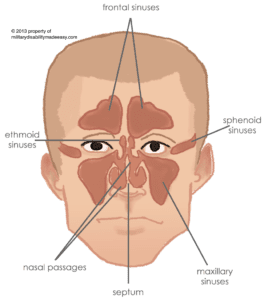Comments Submitted to the VA on the Changes to the Ratings for the Respiratory System and the Ears, Nose, and Throat
- Published:
- Last Updated: October 3, 2022
The following are the comments we submitted on your behalf to the VA in regards to the proposed changes to the ratings of the Respiratory System and the Ears, Nose, and Throat.
After the VA publishes their proposed changes, they always allow a period for comments. Thank you for submitting your comments to us so that we could submit them in a unified front to the VA. Hopefully, we will be able to effect change and make the rating system fairer for all veterans.
Here are the comments we submitted for the Respiratory System and the Ears, Nose, and Throat:
We at www.MilitaryDisabilityMadeEasy.com would like to submit the following comments on behalf of our staff and veterans in response to the proposed changes to the ratings of the Respiratory System and Ears, Nose, and Throat.
Comment #1.
The addition of the 100% rating for peripheral vestibular disorders, code 6204, will be a huge benefit to veterans with very severe conditions. However, this leaves a large hole between the 30% and 100% rating. With the acknowledgement of a wide-range of symptoms and severities, it seems like these rating options will under-rate many conditions that interfere with work/self-care more significantly than the 30% rating requires but not completely, like the 100% requires.
Additional rating levels would greatly benefit veterans who may require occasional assistance with tasks, but who can accomplish tasks themselves with modifications/accommodations other times. Perhaps a more tiered rating system that allows for task-interference a percentage of the time (ex. requires modification and/or accommodation 50% of the time, requires assistance of others 25% of the time, etc.), like the recently proposed changes to the mental disorder ratings, would allow for ratings that more accurately reflect the impact of the condition on work and daily life.
Comment #2.
For the proposed General Rating Formula for Respiratory Conditions, the 100% ratings for acute respiratory failure and outpatient oxygen therapy are not included. However, in §4.96 paragraph C, the notes regarding not requiring PFTs when there is acute respiratory failure or outpatient oxygen therapy remain. These notes imply that these conditions can be rated without the need for PFTs, but the ratings for them have been removed. Without these tests performed, what is the intention for rating acute respiratory failure and the need for oxygen therapy? If the intent is for them to not be independently rated, then removing them from §4.96 (c) would ensure the PFTs needed to rate the conditions are performed. Otherwise, there is no system in place to correctly rate them.
Comment #3.
The removal of an independent rating for tinnitus based on the assertion that tinnitus is a symptom only and not an independent condition is not fully supported by medical research. There are a number of studies that acknowledge the presence of tinnitus in the absence of hearing loss or other identifiable underlying conditions, and a 2017 publication summarized that “the majority of tinnitus patients are affected by chronic idiopathic tinnitus.”
In order to ensure that veterans are properly compensated for tinnitus in cases without a ratable underlying cause, we ask the VA to consider retaining an independent tinnitus code, but possibly adding instruction that limits the application of the code when an underlying condition (like Meniere’s or hearing loss) is identified and rated.
https://pubmed.ncbi.nlm.nih.gov/27995315/
https://pubmed.ncbi.nlm.nih.gov/31644709/
Recent Posts
TDRL vs. PDRL—Which is better for disability benefits?
Leukemias and Multiple Myelomas NOW on the Presumptive List
Two MORE Conditions added to the Burn Pit Presumptive List
The 2025 VA Disability Rates are here!
About Us










